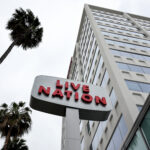The U.S. Supreme Court said Monday that it would hear the Bilski patent case, which will tell high-tech and software companies how far they can go in patenting software, financial strategies and other abstract processes.
An appeals court that specializes in patent cases had ruled in October that the Patent Office was correct in refusing to allow Bernard Bilski and Rand Warsaw’s company, WeatherWise, to patent a method for hedging against energy cost changes.
The Supreme Court said it would take up the case, but made no other comment.
The Federal Circuit decision threw doubt on tens of thousands of business method patents, like software patents and medical diagnostic patents, said Michael Jakes, a patent lawyer for Finnegan LLP who will argue for Bilski before the Supreme Court.
“These are key areas. There have been recent decisions that followed Bilski and struck down some patents that we thought were patentable,” said Jakes.
In fact, this seemingly narrow case has implications for any company that hopes to patent a business method. One of the best-known examples of a business method patent is Amazon.com Inc.’s one-click process to buy goods on the Internet.
Business methods were widely considered unpatentable until a 1998 ruling by the U.S. Court of Appeals for the Federal Circuit. Under that ruling, anything was patentable except laws of nature and abstract ideas, said George Chen, a patent lawyer with Bryan Cave LLP in Phoenix.
But that same court, the Federal Circuit, was also the one that put limits on business methods with its Bilski ruling.
“If you read the Federal Circuit decision, they themselves couldn’t agree, and with something of this magnitude it would have been good to have more of a consensus,” said Chen.
The biotech and industrial engineering industries, which patents methods of monitoring or testing, will be watching this decision closely, said Pavan Agarwal, a patent attorney with Foley and Lardner LLP.
“The entire software industry cares about this,” said Agarwal.
Bilski and Warsaw founded WeatherWise to sell services based on their hedging method that is used by some utilities. The U.S. patent office rejected their patent application in 2000 and the patent board upheld the rejection in 2006.
That court said the hedging method could not be patented because it was not tied to a machine and did not result in a transformation.
(Additional reporting by James Vicini, editing by Gerald E. McCormick and Matthew Lewis)
Was this article valuable?
Here are more articles you may enjoy.

 ‘Structural Shift’ Occurring in California Surplus Lines
‘Structural Shift’ Occurring in California Surplus Lines  UK Floods Raise Specter of ‘Mortgage Prisoners’ Across Banks
UK Floods Raise Specter of ‘Mortgage Prisoners’ Across Banks  Judge Upholds $243M Verdict Against Tesla Over Fatal Autopilot Crash
Judge Upholds $243M Verdict Against Tesla Over Fatal Autopilot Crash  Live Nation’s Settlement Efforts Stalled Ahead of DOJ Trial
Live Nation’s Settlement Efforts Stalled Ahead of DOJ Trial 